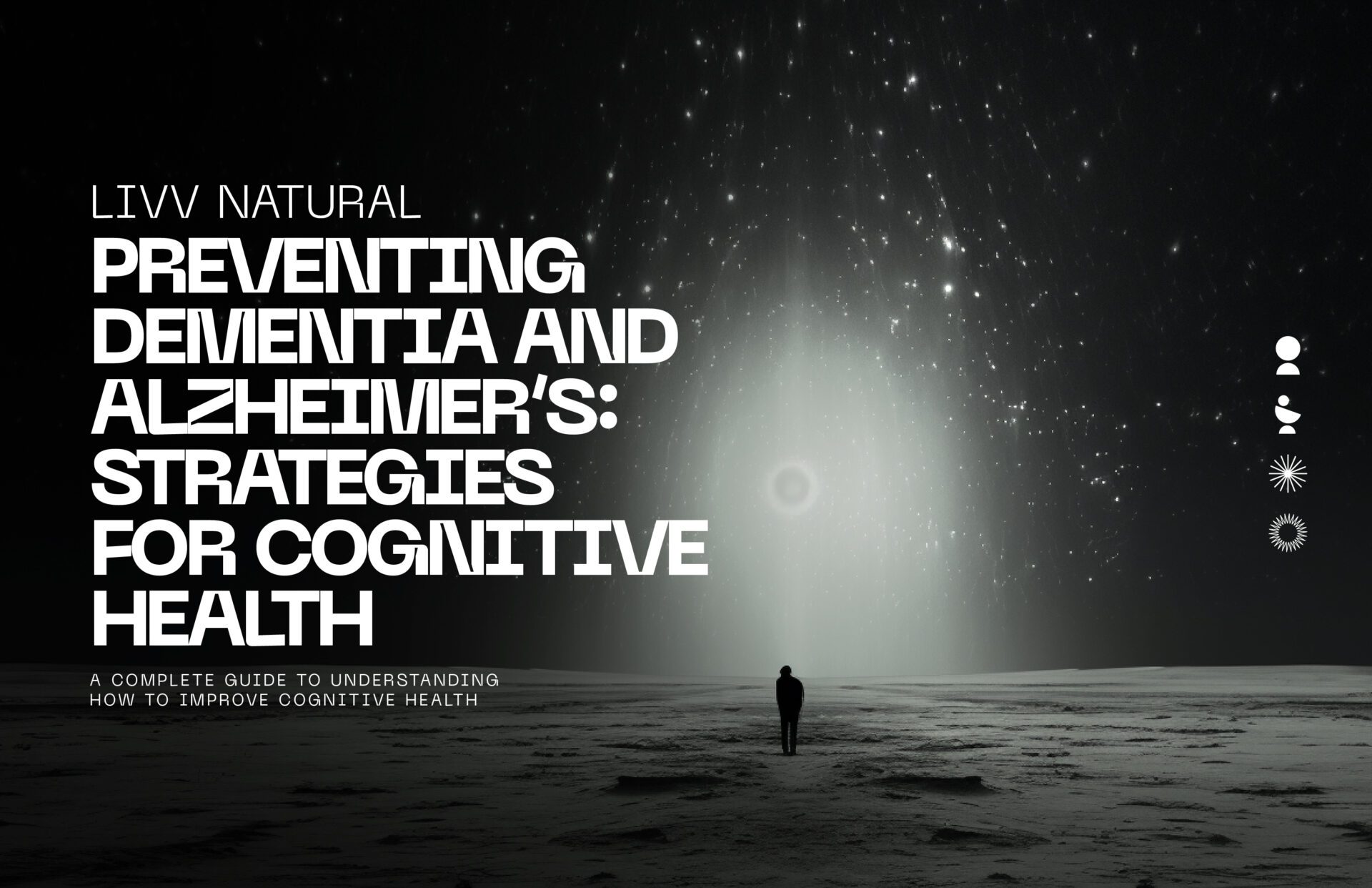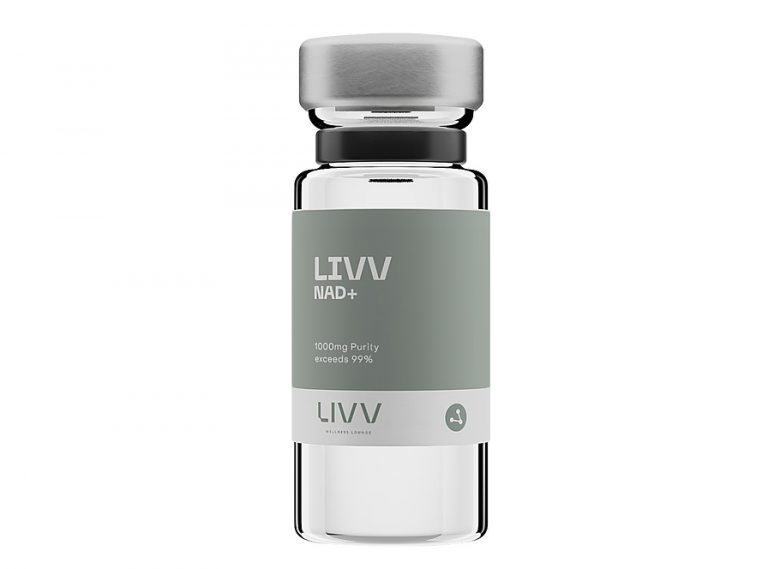Possible ways to prevent alheizmers / dementia

Contents
The biological basis of brain health
Chemicals of cognitive decline
The inflammation connection
Peptides for preventing dementia and Alzheimer’s
Lifestyle tips for better cognitive functioning
A promising path forward
Preventing dementia becomes an essential question as you age. Whether you have a family history or not, the risk of this disorder remains. Preventing it is vital to independence and quality of life in your senior years.
Dementia has a profound effect on memory and cognitive function. It’s a growing concern, with over 55 million people living with it in 2020. According to estimates, this number doubles every 20 years. Luckily, scientists are devising ways to fight back and lessen its damaging effects.
Early diagnosis, lifestyle changes, and natural solutions are the way to go. While they may not prevent dementia, they can delay it and reduce its symptoms. And until we have a real cure, that’s the best possible outcome.
Join us to learn about the causes of dementia and ways to prevent it. Whether facing a diagnosis or practicing preventative care, knowledge lets you take control of your cognitive wellness.
The biological basis of brain health
Discussions about reversing aging often revolve around aesthetics. But there’s much more to the field. Cognitive impairments affect older individuals, making brain health a significant domain of anti-aging.
Preventing dementia requires understanding the inner workings of our brains. That way, we know what we can influence and what remains outside our control.
So, how does the brain work?
Neurons are the cells and building blocks of the brain. Their activity correlates with how we think, feel, and perceive. Connections between them happen through neurotransmitters, tiny messengers that move chemical signals.
The brain maintains itself through neuroplasticity. It’s the ability to form neural connections and reorganize its structure. This process lets us learn, form memories, and adapt our worldviews to new experiences.
Aging and dementia conditions reduce neuroplasticity.
Humans have a telltale aging pattern, and dementia resembles it. The brains of healthy seniors and those with neurodegenerative diseases are similar. But, the latter category faces an earlier, faster, and more severe decline.
What causes faster cognitive decline? What are its implications for preventing dementia?
We often link cardiovascular disease with Alzheimer’s. Other related issues are hearing loss, depression, social isolation, and a sedentary lifestyle. Addressing these risk factors could be vital to preventing dementia.
Coexisting conditions aren’t the only piece of the puzzle. Alzheimer’s and dementia have several connected causes: age, genetics, environment, and lifestyle.
We can’t control some of these influences, like age and genes. But we can reduce risks related to our environments and lifestyles.
Next, let’s see what happens in a dementia-affected brain.
Chemicals of cognitive decline
Several forms of dementia, including Alzheimer’s disease, have clear biological indicators. Affected brains exhibit abnormal buildup of proteins within and surrounding the cells. Amyloid plaques form around these cells, and tau proteins create tangles inside them.
This process commences years before the symptom onset. As it progresses, the movement of neurotransmitters between the cells slows down. Some brain parts eventually shrink, beginning with the ones responsible for memories.
Amyloid plaques
Amyloid plaques are misfolded proteins between nerve cells. They consist of small pieces of a protein called beta-amyloid. We see them in brain regions associated with cognitive function, like memory.
Beta-amyloid occurs when the amyloid precursor protein (APP) breaks down. It consists of 38, 40, or 42 amino acids. The latter is chemically “sticky” and likely to make plaques. Three genetic abnormalities lead to the overproduction of this 42-amino acid version.
Some studies say that beta-amyloid splits into fragments and releases free radicals. They then attack and damage neurons. Another theory suggests they poke holes in neuronal membranes, killing these cells. In either case, the nerve cells die due to this protein.
As this happens, plaques form and accumulate in the brain. Protein aggregation, called amyloidosis, contributes to neurodegenerative disorders.
There are strategies for removing amyloid plaques and preventing dementia. Diets rich in antioxidants and omega-3 fatty acids may reduce their accumulation.
Tau proteins
Tau proteins appear within the neurons and stabilize internal microtubules. They transport nutrients between parts of the cell and maintain its functionality. In people with Alzheimer’s, this protein is misfolded and abnormally shaped.
Abnormal tau proteins come apart and reassemble in messy tangles. They accumulate in neurons and can’t be disposed of through the usual mechanisms. Smaller versions of the protein circulate the brain and interfere with cellular function.
Tau proteins continue accumulating as the disease progresses. They travel to other cells from the affected ones using synapses as pathways. Their total amount showcases disease severity.
Lowering tau levels in the brain is effective for preventing dementia progression. Studies also suggest that people on Mediterranean-like diets have lower accumulation levels.
The inflammation connection
Inflammation is a tricky condition. When acute, it’s a natural response to injury and infection that protects us from harmful agents. Chronic inflammation is long-term, persistent, and associated with various health issues.
Chronic inflammation occurs due to stress, smoking, poor diet, and environmental toxins. It can affect organs and tissues, including the brain.
A persistent inflammatory response during middle adulthood (your forties and fifties) may cause neurodegeneration later. Although not the sole cause of such issues, it is statistically significant. As a result, reducing inflammation might be central to preventing dementia.
You can reduce inflammation in the brain through natural means. Anti-inflammatory foods, regular exercise, adequate sleep, and stress reduction are must-haves. Approaches like intermittent fasting and hydrotherapy could help.
Medical solutions to neuroinflammation are emerging, too.
Targeted brain stimulation to reduce inflammation
Several neuromodulation therapies reduce the release of the brain’s pro-inflammatory substances. While they focus on anxiety and depression, they may be helpful to folks with dementia.
We’ve found that electrical stimulation of the vagus nerve promotes healing. Current clinical studies tested it on rheumatoid arthritis and irritable bowel syndrome (IBS).
We can apply pharmaceuticals. Studies suggest antidepressants may lower stress-induced neuroinflammation. Corticosteroids and immune modulators seem promising. Another emerging frontier for preventing dementia comes in the form of peptides.
Peptides for preventing dementia and Alzheimer’s
Peptides are short chains of amino acids that regulate physiological processes. Their anti-inflammatory and neuroprotective effects could prevent cognitive decline.
Peptide therapy supplements these substances and treats the root causes of diseases. It’s targeted, effective, fast-acting, and free of side effects. It’s also customizable. Experts design peptide stacks to suit the patient’s unique health condition.
These chemicals may reduce inflammation and promote neuron growth. They fight the risk factors of neurodegeneration and help the brain heal itself. Since they restore the body’s natural function, they don’t leave you drug-dependent.
Your peptide therapy will differ from somebody else’s. Still, these three amino acids are in most blends for preventing dementia.
NAD+
Nicotinamide adenine dinucleotide (NAD+) is a coenzyme in all living cells. It supports enzyme activity and energy production, maintaining health and bodily balance. Unfortunately, its levels decline as we age. NAD+ supplements improve the health and lifespan of older individuals.
A lack of NAD+ causes fatigue, poor focus, and memory loss. Using NAD+ IV therapy leads to the restoration of neurological function. Supplements have preventative roles, too, reducing the risk of a shortage.
Beyond offering direct ways of preventing dementia, NAD+ modulation has indirect benefits. It improves sleep and reduces stress, factors that otherwise exacerbate cognitive decline.
Pinealon
Pinealon is a synthetic peptide that supports central nervous system function. It might improve memory and offset the adverse effects of aging. Its influence applies to healthy and Alzheimer’s-affected individuals.
This peptide improves intellectual functions, including memory, attention span, and learning. It also helps the brain adapt to extreme psycho-physical stress. Its neuroprotective effects make the neurons less susceptible to damage.
While not yet used for preventing dementia, pinealon is promising. It aids folks with compromised brains, whether due to age, stress, or disease.
Cerebrolysin and PE-22-28
Cerebrolysin and PE-22-28 are cognitive boosters and among the most effective nootropic peptides. Both promote neurological function and slow down neurodegeneration.
PE-22-28 is the synthetic version of spadin, a naturally occurring antidepressant peptide. It enhances cognitive function, sharpens memory, and improves mood. Beyond protecting the neurons, it treats lifestyle dementia causes like loneliness and depression.
Cerebrolysin is a peptide blend that supports neuron growth. It restores damaged nerve cells and enables new ones, improving mental function. Besides preventing dementia, it may boost cognition and treat traumatic brain injury.
Neither peptide is an established dementia treatment yet. But it seems both could support prevention and symptom management.
Lifestyle tips for better cognitive functioning
Increasing longevity and quality of life can be as simple as maintaining good habits. Besides keeping your body healthy, this approach does wonders for preventing dementia conditions.
Here are the cornerstones of a healthy, dementia-free life as you age:
- Exercise. Regular physical activity supports heart health and mental well-being. Even light exercise may prevent dementia. It diminishes risk factors, releases neuroprotective chemicals, and improves sleep quality.
- Nutrition. A healthy, balanced diet reduces the risk of several age-related conditions. It ensures you get the necessary nutrients, supporting cognitive function. The optimal diet limits processed foods and incorporates plenty of fruits and veggies.
- No smoking and alcohol. Smoking harms the blood circulation in the brain, heart, and lungs. Alcohol does similar damage, although to a lesser extent. Both raise the chances of developing dementia.
- Staying mentally active. Puzzles, crosswords, and memory games train your brain. Learning new things builds up synapses, delaying or preventing dementia.
- Prioritizing social activities. Research shows that social disengagement increases dementia risk. Regularly spend time with others, talking and engaging in hobbies.
Lead a healthy, fulfilled life and have regular check-ups with your physician. They catch early signs of cognitive decline and suggest activities to fight it.
A promising path forward
Preventing dementia is a complex journey, but not an impossible one. It involves knowing what happens in your brain as you age and ways to address these changes.
Since prevention is better than cure, the best path forward is proactive. Lifestyle changes, cognitive health management, and innovative therapies are encouraging. As people get more informed, there’s reason to hope we’ll have a future with fewer cases of dementia.
Lead a healthy life and watch yourself for signs of neurodegeneration. Explore preventive and regenerative medicine for the best results. Peptides are an up-and-coming way to keep your cognitive faculties late into life, so why not give them a go?
Fill out the wellness questionnaire on our website to give us a starting point. We’ll devise the optimal treatment for a healthy brain and a happy life.
Author: Dr. Jason Phan NMD – Founder of LIVV Natural – Anti-aging – regenerative medicine – peptide therapy


